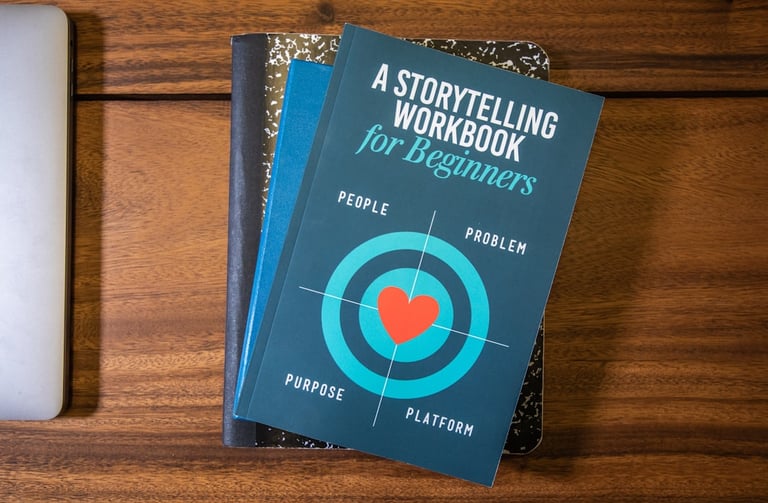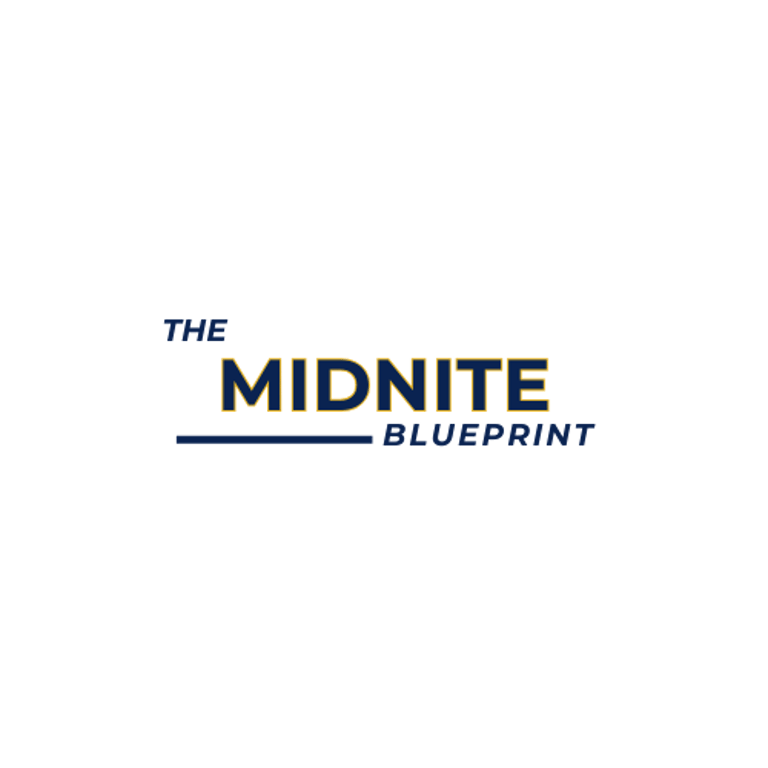Personal Branding Insights
Personal branding is vital for entrepreneurs, highlighting authenticity, consistency, and value. It builds trust, attracts clients, and aligns with business goals for growth.
Deante Newman
7/7/20256 min read
In today's dynamic business landscape, building a personal brand is just as crucial as cultivating your business brand. 🌟 As entrepreneurs, coaches, and creatives, your personal brand can set you apart from the competition and create authentic connections with your audience. It's not just about promoting products—it's about showcasing your unique story, values, and expertise. 📈 By investing in your personal brand, you open doors to new opportunities, foster trust, and inspire others to achieve their own financial freedom. 🚀 Let's explore how you can embark on this empowering journey to elevate both yourself and your business.


Understanding Personal Branding
Personal branding is the foundation of your entrepreneurial journey. Let's explore what it means, why it's crucial, and the key elements that make a brand stand out.
What is Personal Branding?
Personal branding is the practice of marketing yourself and your career as a brand. It's about creating a unique professional identity that sets you apart from others in your field. Your personal brand is the sum of your skills, experiences, and personality. It's how you present yourself to the world and how others perceive you. Think of it as your professional reputation, carefully crafted and consistently maintained across all platforms and interactions.
Why It Matters for Entrepreneurs
For entrepreneurs, personal branding is not just important—it's essential. It's the key to standing out in a crowded marketplace and attracting the right opportunities. A strong personal brand builds trust with potential clients and partners. It showcases your expertise and values, making it easier for others to understand what you bring to the table. Moreover, personal branding can open doors to speaking engagements, media opportunities, and collaborations that can accelerate your business growth.
Key Elements of a Strong Brand
A strong personal brand is built on several key elements:
Authenticity: Being true to who you are and what you stand for.
Consistency: Maintaining a cohesive message across all platforms.
Value: Offering unique insights or solutions to your audience.
Your brand should also have a clear visual identity, including a professional headshot, logo, and color scheme. Remember, your personal brand is a reflection of your professional self. It should evolve as you grow and change throughout your career.
Building Your Personal Brand
Creating a powerful personal brand requires careful thought and planning. Let's dive into the essential steps to build a brand that truly represents you and resonates with your audience.
Defining Your Unique Value
Your unique value proposition (UVP) is what sets you apart from others in your field. It's the special combination of skills, experiences, and qualities that make you uniquely qualified to serve your audience.
To define your UVP, ask yourself:
What problems can I solve better than anyone else?
What unique perspective do I bring to my industry?
What are my core values and how do they influence my work?
Remember, your UVP should be clear, concise, and focused on the benefits you provide to your audience.
Crafting Your Brand Story
Your brand story is the narrative that ties together your experiences, values, and vision. It's what makes you relatable and memorable to your audience.
A compelling brand story should:
Highlight your journey and the challenges you've overcome
Showcase your expertise and unique approach
Demonstrate how you help others achieve their goals
When crafting your story, be authentic and focus on the elements that will resonate most with your target audience.
Establishing a Consistent Image
Consistency is key in personal branding. Your image should be cohesive across all platforms and touchpoints, from your website to your social media profiles to your in-person interactions.
This includes:
Using consistent colors, fonts, and imagery
Maintaining a consistent tone of voice in your communications
Ensuring your professional appearance aligns with your brand image
Remember, every interaction is an opportunity to reinforce your brand. Make sure each one counts.
Leveraging Social Media
Social media is a powerful tool for building and promoting your personal brand. Used effectively, it can help you reach a wider audience, showcase your expertise, and build meaningful connections.
Choosing the Right Platforms
Not all social media platforms are created equal when it comes to personal branding. Choose the platforms that best align with your goals and where your target audience is most active.
Consider these factors:
LinkedIn for professional networking and B2B connections
Instagram for visual brands and lifestyle-focused content
Twitter for real-time engagement and thought leadership
TikTok for reaching younger audiences with short-form video content
Focus on mastering 2-3 platforms rather than spreading yourself thin across all of them.
Creating Engaging Content
Content is the lifeblood of your social media presence. Create content that provides value to your audience while showcasing your expertise and personality.
Tips for creating engaging content:
Mix up your content types (text, images, videos, live streams)
Share behind-the-scenes glimpses into your work or life
Offer practical tips and insights related to your industry
Engage with your audience through questions and polls
Remember to maintain a consistent posting schedule to keep your audience engaged and growing.
Building an Authentic Community
Building a community around your personal brand is about more than just accumulating followers. It's about creating meaningful connections and fostering engagement.
To build an authentic community:
Respond to comments and messages promptly
Show genuine interest in your followers' lives and work
Collaborate with other brands and influencers in your niche
Host virtual or in-person events to connect with your audience
Remember, authenticity is key. Be yourself and let your genuine personality shine through in your interactions.
Personal Branding and Business Growth
Your personal brand and your business brand should work in harmony, each supporting and enhancing the other. Let's explore how to align your personal brand with your business goals for maximum impact.
Aligning with Business Goals
Your personal brand should support and amplify your business objectives. This alignment creates a powerful synergy that can drive growth and success.
Consider these strategies:
Highlight your business offerings through your personal content
Share your company's successes as part of your personal journey
Use your personal platform to showcase your business's culture and values
Remember, consistency between your personal and business brands builds trust and credibility with your audience.
Attracting the Right Clients
A well-crafted personal brand acts as a magnet, attracting clients who resonate with your values and approach. This natural alignment often leads to more satisfying and successful business relationships.
To attract ideal clients:
Be clear about who you serve and what problems you solve
Share case studies and testimonials that showcase your expertise
Engage in conversations and communities where your ideal clients spend time
Remember, it's not about attracting everyone—it's about attracting the right ones.
Enhancing Your Business Reputation
Your personal brand can significantly impact your business's reputation. As the face of your company, your actions and reputation directly reflect on your business.
To leverage your personal brand for business reputation:
Share thought leadership content that positions you as an industry expert
Engage in speaking engagements and media appearances
Participate in industry events and networking opportunities
Remember, every public interaction is an opportunity to enhance both your personal and business reputation.
Overcoming Branding Challenges
Building a personal brand isn't always smooth sailing. Let's address some common challenges and how to navigate them effectively.
Navigating Common Pitfalls
Personal branding comes with its share of potential pitfalls. Being aware of these can help you avoid them and build a stronger brand.
Common pitfalls include:
Inconsistency across platforms
Oversharing personal information
Neglecting to evolve your brand as you grow
To avoid these, regularly audit your brand presence and seek feedback from trusted colleagues or mentors.
Remember, your brand is a living entity—it requires ongoing care and attention to thrive.
Staying Authentic Online
In the digital age, maintaining authenticity can be challenging. The pressure to present a perfect image can lead to an inauthentic online persona.
To stay authentic:
Share both successes and challenges
Be transparent about your journey and learning process
Don't be afraid to show your personality and quirks
Remember, people connect with real humans, not perfect facades. Authenticity builds trust and loyalty.
Balancing Personal and Business Identities
Finding the right balance between your personal and business identities can be tricky. You want to be professional, but also relatable and human.
Tips for striking the right balance:
Set clear boundaries for what you share online
Create separate accounts for personal and professional use if needed
Be mindful of how your personal posts might impact your business reputation
Remember, your personal brand should complement, not overshadow, your business brand.
Tools and Resources
Equipping yourself with the right tools and knowledge is crucial for successful personal branding. Let's explore some essential resources to help you on your branding journey.
Must-Have Branding Tools
The right tools can streamline your branding efforts and help you maintain consistency across platforms.
Essential branding tools include:
Canva for creating branded graphics and social media posts
Hootsuite or Buffer for scheduling and managing social media content
Grammarly for ensuring error-free writing
Google Analytics for tracking website traffic and engagement
Remember, the best tools are those that fit your specific needs and workflow.
Learning from Branding Experts
Continuous learning is key to staying ahead in the personal branding game. Seek out insights from established branding experts and thought leaders.
Ways to learn from experts:
Follow branding experts on social media
Attend webinars and virtual conferences
Read books and articles on personal branding
Listen to podcasts focused on branding and entrepreneurship
Remember, while it's great to learn from others, your brand should still be uniquely yours.
Continuous Personal Development
Personal branding is an ongoing process that requires continuous growth and development. Invest in yourself to keep your brand fresh and relevant.
Areas for personal development:
Improve your public speaking skills
Enhance your writing abilities
Stay updated on industry trends and technologies
Develop new skills that complement your brand
Remember, as you grow, your brand grows with you. Embrace the journey of continuous improvement.
